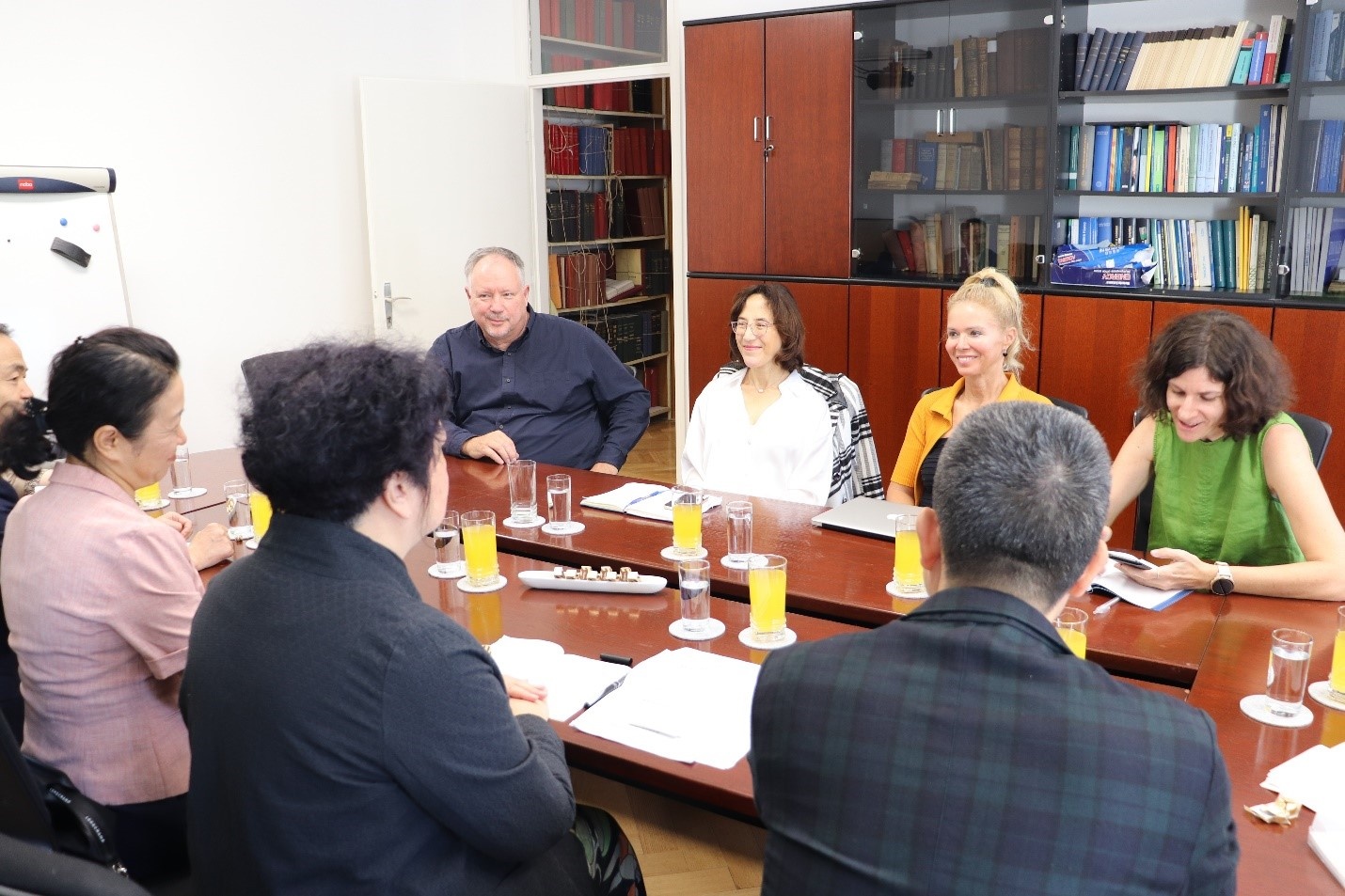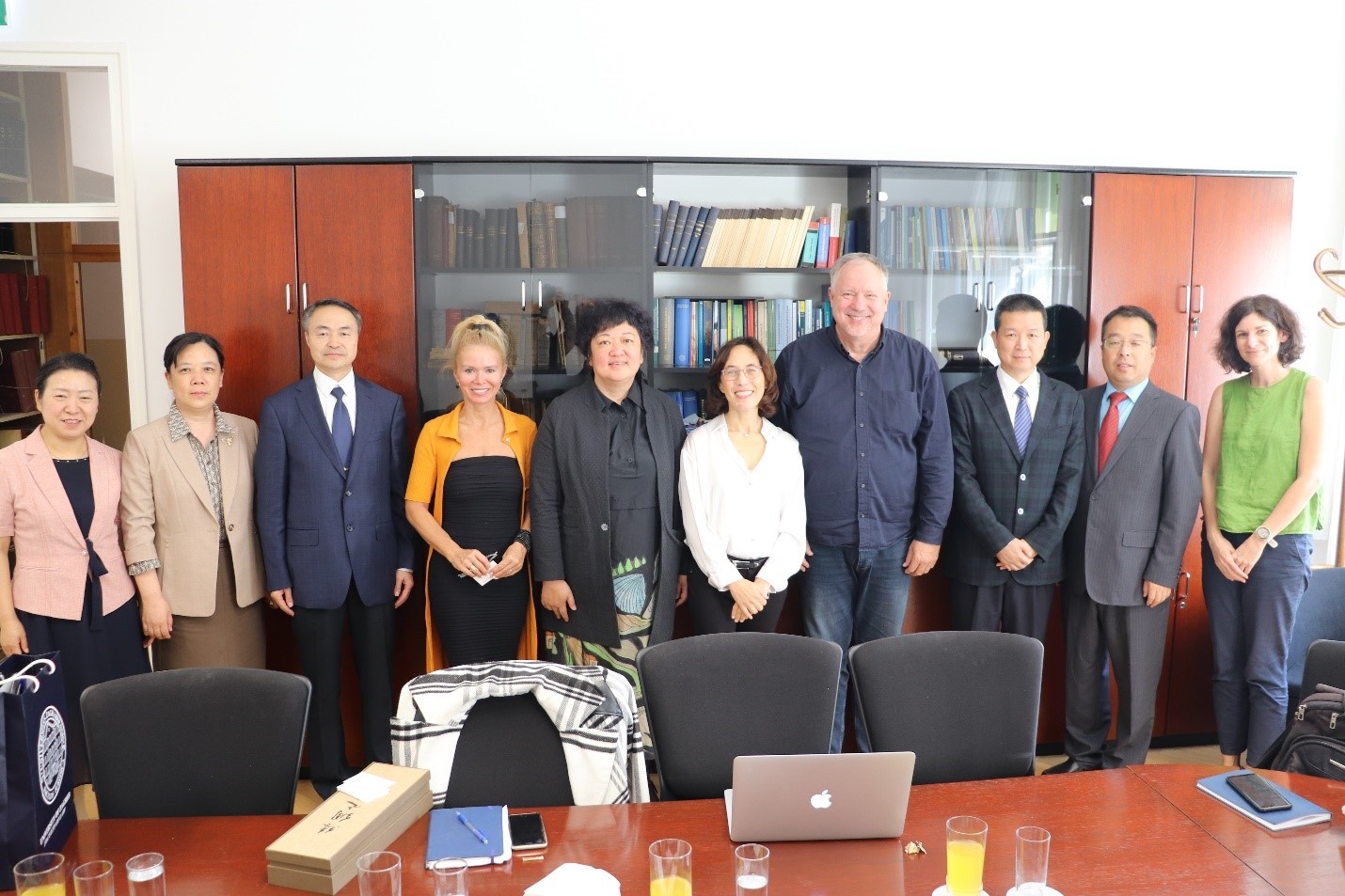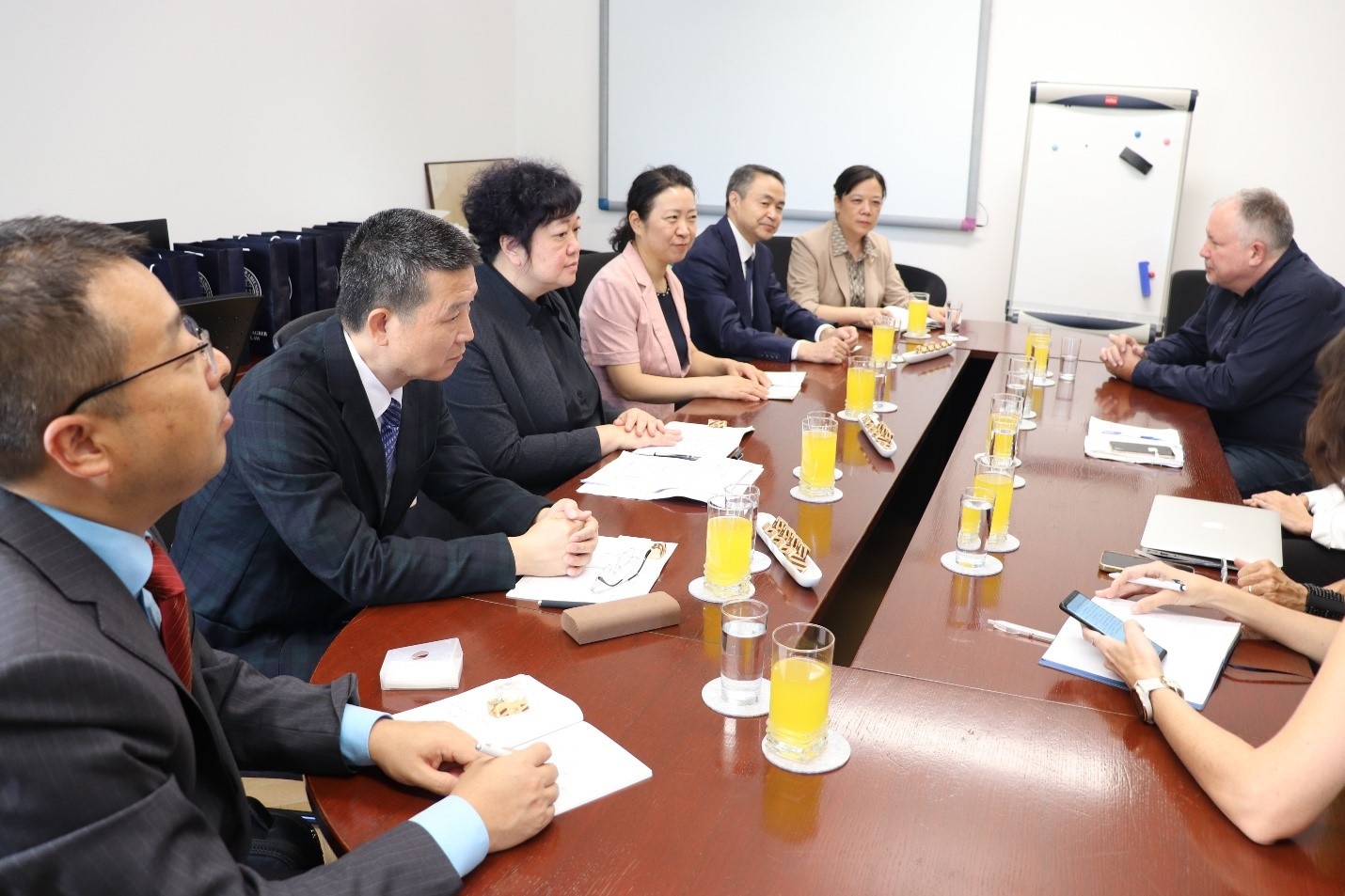On September 23rd, 2024, the Faculty of Law of the University of Zagreb had the honour of hosting a delegation of six judges from the Higher People’s Court of Shaanxi Province, China. This visit represents an important step in the exchange of knowledge and strengthening of international cooperation with Chinese judicial institutions. The Chinese delegation consisted of: Jiang Min, Deputy President of the Court; Wang Ruifang, Senior Judge of the Compensation Office; Ma Xiaoli, Vice President of the Administrative Court; Wu Peng, Deputy Director of the Compensation Office; Tian Hecheng, President of Tongchuan Municipal Intermediate People’s Court; and Zhang Hongde, President of the Shangluo Municipal Intermediate People’s Court.
As a representative of Croatian judges and mediators, the judge of the High Commercial Court of the Republic of Croatia, Srđan Šimac, who also holds the office of the president of the Croatian Association for Mediation, participated in the meeting. On behalf of the Faculty of Law, the guests were received by professor Iris Goldner Lang, PhD, vice dean for international cooperation and quality management, and Martina Batistić, political scientist from the Office for International Cooperation.
The meeting provided an opportunity to discuss key topics related to the training of lawyers, especially judges, within the Croatian and Chinese higher education systems. The guests were particularly interested in the activities of the Faculty of Law in Zagreb and its key role in legal education in Croatia. The thematic focus of the meeting was mediation in court practice. Within the profession, mediation is seen as an instrument that allows the judge to abandon established, strict and formal legal procedures and to distance himself from the role of a “decision maker”. The judge mediator gathers the legally relevant facts, using his authority and knowledge, and helps the parties make their own decisions that are in their best interest.
In the context of mediation, the judiciary is affirmed as a “public service”, while the judge assumes the role of a “public servant”. In Chinese society, the principle of “public service” is deeply rooted and manifests itself through the judicial system, especially through the institution of mediation. Chinese mediation procedures differ significantly from Croatian ones in that they take place exclusively under state authority, and government institutions, especially those within The Ministries of Justice. They are the only ones in charge of conducting mediation. However, in Croatian and Chinese mediation procedures, the basic goal remains unchanged: court disputes should be the last option, while the parties, relying on legally relevant facts, are guided towards an optimal solution.






